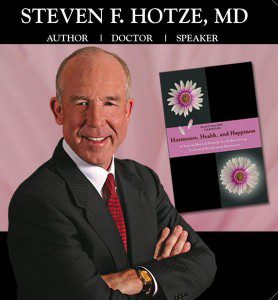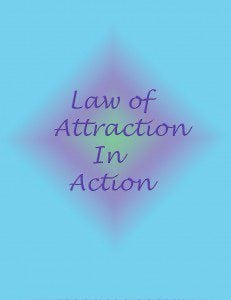 Years ago I told two different doctors that I believed something was wrong with my thyroid. I noticed I had symptoms of hypothyroidism. Each pooh-poohed me, saying my numbers were fine. But they weren’t. I finally went to an endocrinologist who said my numbers weren’t terrible but they indicated a problem, especially with my symptoms. After getting help, the annoying symptoms are gone and I feel much better. Taking charge of my health empowered me! Thyroid issues are very common yet many people don’t know they need care.
Years ago I told two different doctors that I believed something was wrong with my thyroid. I noticed I had symptoms of hypothyroidism. Each pooh-poohed me, saying my numbers were fine. But they weren’t. I finally went to an endocrinologist who said my numbers weren’t terrible but they indicated a problem, especially with my symptoms. After getting help, the annoying symptoms are gone and I feel much better. Taking charge of my health empowered me! Thyroid issues are very common yet many people don’t know they need care.
That’s why I’m thrilled to have Dr. Steven Hotze, founder and CEO of the Hotze Health & Wellness Center in Houston, Texas and author of Hormones, Health, and Happiness as my guest today. He’s a member of the American Academy of Otolaryngic Allergy and the Association of American Physicians and Surgeons, and the former president of the Pan American Allergy Society. Dr. Hotze shares why it’s so important to find a doctor who can treat you properly. I personally relate to most of what he says and use the bio-identical hormones he recommends to keep my body healthy, after having an adverse reaction to the synthetic drug. Read this carefully!
Hypothyroidism—a ‘Silent Epidemic’ of Misdiagnosis
3 Major Consequences for Sufferers
by Dr. Steven Hotze
There are at least two aspects of a misdiagnosis that can cause patients harm. First, it means you are not being treated for what’s actually causing illness; second, a misdiagnosis can lead to inappropriate treatments and medicines with side effects that can cause you harm. But there’s a quality of life issue that’s important as well. Many of my patients are women at or near middle age, and they often suffer from a multitude of symptoms including fatigue, low body temperature, brain fog, weight gain, loss of libido, hair loss and depression. Too often, they’re told by their physician that ‘nothing is wrong.’
Women are more apt than men to pay attention to their bodies – and they’re right for doing so. A women’s body includes a much more complex hormonal balancing act, with dramatic swings involved in the menstrual cycle. Often, the women who come to me with that litany of symptoms do have a medical issue: hypothyroidism. It’s a “hidden epidemic” because it is so frequently un- or misdiagnosed.
The condition means the thyroid is not producing enough thyroid hormone, which affects hormone regulation. Hypothyroidism affects women seven times more frequently than men. Three ways in which a missed hypothyroidism diagnosis can affect a patient’s life:
• Living with unrelieved symptoms. When a person experiences the constellation of symptoms associated with hypothyroidism and is told by multiple doctors that it’s “just a normal part of aging,” the future can seem bleak. Many physicians will order blood work and tell the patient she’s fine because the results are “normal.” However, 95 percent of people tested for hypothyroidism fall within a range considered normal. Also, keep in mind that two different labs testing identical blood samples can provide different results.
• Prescribed unnecessary medication with undesirable side effects. Wellbutrin, Lexapro, Paxil, Effexor, Zoloft and Fluoxetine – these are just some of the antidepressants that one in four women take, according to a recent report from MedCo. One in 10 Americans, or 30 million people, are taking pills to fight depression, and 30 percent of the women aged 35 to 60 who are taking them are doing so because of misdiagnosed hypothyroidism. Antidepressants can have numerous side effects, from nausea and irritability to sexual dysfunction and homicidal or suicidal thoughts.
• Uncomfortable, unhealthy physical changes. Untreated hypothyroidism causes weight gain, which can further affect a person’s emotional health. The weight gain comes with all the risks any excessive weight brings, from diabetes to heart disease.
It has long been a cliché in our society that “pills are not often the answer for our mental and physical well-being,” yet pharmaceutical companies continue to dominate treatment in our country. Hormone replacement therapy, as long as bioidentical hormones are used, has been proven to be a healthy and effective treatment for women suffering hypothyroidism.
The distinction between synthetic and bioidentical hormones is important; the latter have the same molecular structure as the hormones that are found naturally in the body, which means bioidentical hormone treatments cannot hurt patients. Counterfeit hormones – those that do not perfectly match the molecular structure of hormones in one’s body – can be dangerous.
Hypothyroidism and aging share an important common denominator – diminished or faulty hormone production — so it’s easy to see how doctors can miss a diagnosis. But that makes it all the more important for physicians to listen to their patients, and that takes time. Hormone replacement therapy using bioidentical hormones help patients who are suffering extreme symptoms in both cases.
***************
Check out Dr. Steven Hotze‘s book Hormones, Health, and Happiness to learn how to can age in more comfort and good health. It’s got some great info for taking charge of your health, like I did!
***************
Join the Self-Love Movement™! Take the 31 Days of Self-Love Commitment and get my book, How Do I Love Me? Let Me Count the Ways for free at http://howdoiloveme.com. Read my 2013 31 Days of Self-Love Posts HERE. Join the Self-Love Movement™! on Facebook.
Please leave comments under my posts so we can stay connected.

